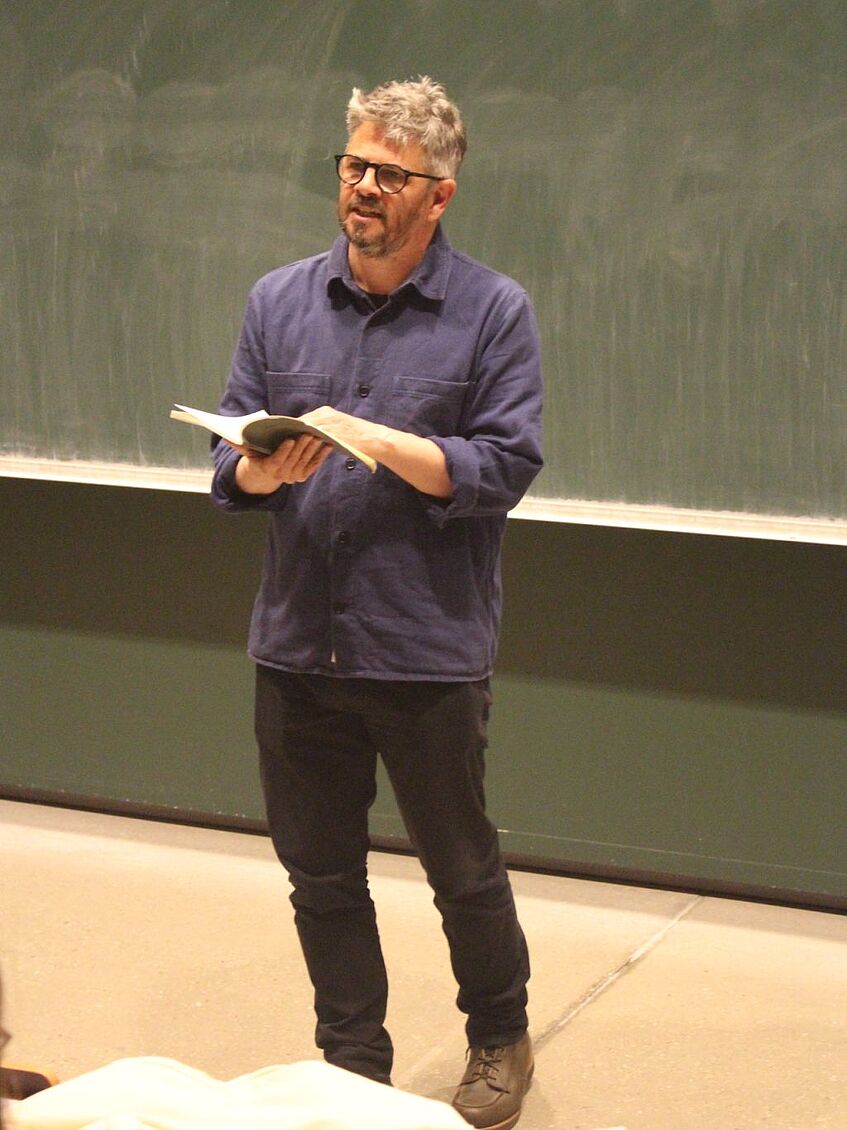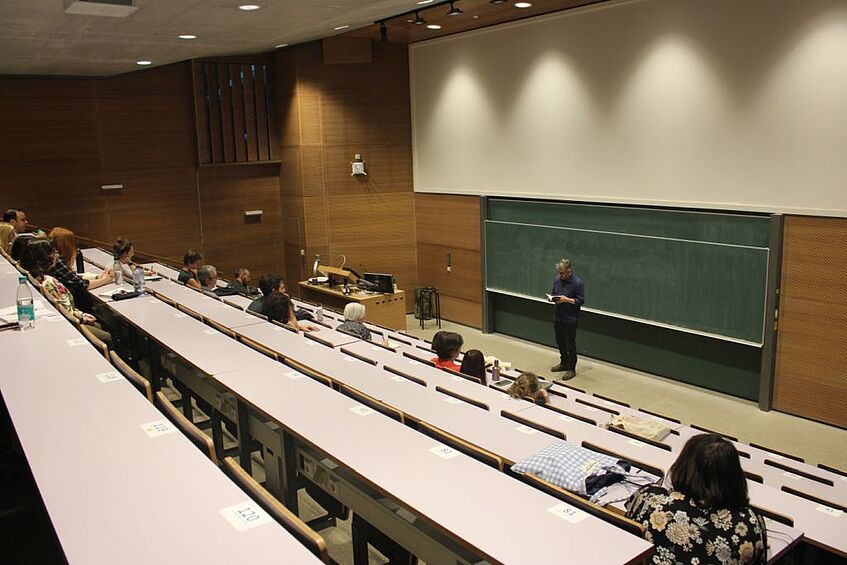Poetry Reading with David Herd
On Thursday 2nd May 2024, the Department of English and American Studies was honoured to host a reading by David Herd, organised by Professor Sylvia Mieszkowski.
David Herd is a poet, academic and activist. Co-founder and co-organiser of the Refugee Tales project, his creative and academic work operates at the intersection of literature and human rights. Herd introduced and provided a brief but comprehensive history of the Refugee Tales project before reading the opening section of his most recent collection of poetry, Walk Song (Shearsman, 2022).

David Herd (© Gizem Doğrul)
Written between 2015 and 2020, Walk Song opens with “Prologue”, a long poem that functions, Herd notes, as a poetic introduction to the Refugee Tales project. Indeed, all of the poems in Walk Song are deeply embedded in this project. They fit into Herd’s wider interests in the relationship between people and landscape, facilitating networks of connectivity and compassion. Often freely interweaving passages from Chaucer’s The Canterbury Tales, Herd’s Prologue (available to watch at this link) opens with the following statement:
“This prologue is not a poem
It is an act of welcome
It announces
That people present
Reject the terms
Of a debate that criminalizes
Human movement
It is a declaration this night
In Shepherdswell
Of solidarity.”
Herd continues, “But this prologue is not a poem/ It is an act of introduction [...] And all the introduction can do/Is set the tone” (Herd “Prologue” 14). Like the tone of his “Prologue”, Herd’s work is “welcoming”, “celebratory”, “courteous” and “real”, taking on the position of the Host in Chaucer’s famous prologue. The poetry reading unfolded in an engaging format, with Herd alternating between a short contextualisation, reading the poems out loud, and then talking a bit more about his creative writing process. This way, the audience was able to experience the poems on their own terms, and then arrive at a deeper understanding of how they fit into a wider project. Beyond the content of the poems, Herd’s engaging and empathic delivery of his poems particularly filled the room with a sense of emotion, as he delivered lines like, “and every demand is urgent/and what we call for/ is an end/to this inhuman discourse” (Herd “Prologue” 14).

Poetry reading David Herd (© Gizem Doğrul)
Herd’s Walk Song, filled with personal narrative and emotions, invites the audience in, fosters empathy, and enacts connection in a way that transcends backgrounds, countries and borders. Esther Zitterl offered her thoughts on the reading:
“David Herd's poetry accomplishes a singular feat: Embedding human rights in its very syntax, it weaves an innovative intertextual net between literature and politics. With his passionate performance, David rendered his experiences with refugees audible, palpable, and, most importantly, relatable. It was a profoundly moving and connecting experience.”
Leaving a lasting impression on the audience, the event served as a powerful reminder of the impact of poetry. While a single poem by itself may not hold the power to change the UK’s detention laws, poetry can inspire dialogue and serve as a vital piece in the larger conversation surrounding these issues. By way of conclusion then, perhaps it is best to turn to Herd’s Prologue, where he notes that
“And the tone is welcoming
And the tone is celebratory
And the tone is courteous
And the tone is real.
And every step sets out a demand
And every demand is urgent
And what we call for
Is an end
To this inhuman discourse.”
(David Herd. “Prologue.” Walk Song. Shearsman Books, 2022, pp. 9-15.)
About the author:
David Herd is a poet, critic and co-organiser of the project Refugee Tales. His work is at the intersection of literature and human rights. Herd’s critical history, Writing Against Expulsion in the Post-War World: Making Space for the Human was published by Oxford University Press in September 2023. His most recent collection of poetry, Walk Song (2022), was a Book of the Year in the Australian Review of Books. He has published widely on the politics of human movement and on modern and contemporary poetry and poetics. His edited volume, Contemporary Olson, was published by Manchester University Press in 2016.
In collaboration with Anna Pincus and colleagues at Gatwick Detainees Welfare Group, David has been co-organising the project Refugee Tales since 2014, through which he has helped articulate the call for a future without detention. Refugee Tales makes its call by sharing the stories of people who have experienced indefinite detention in the UK. Stories have been published in four volumes by Comma Press.
More information is available from St. Andrew’s University and Comma Press.
Event note by Gizem Doğrul, Georgina Nugent, and Kevin Potter
